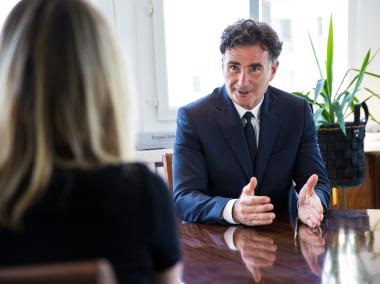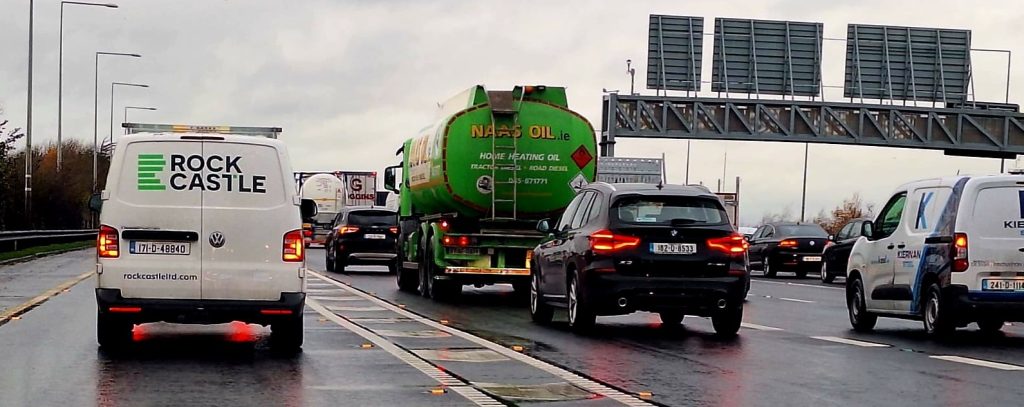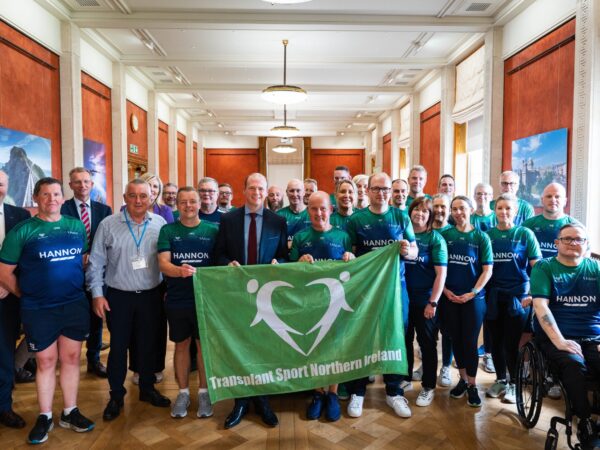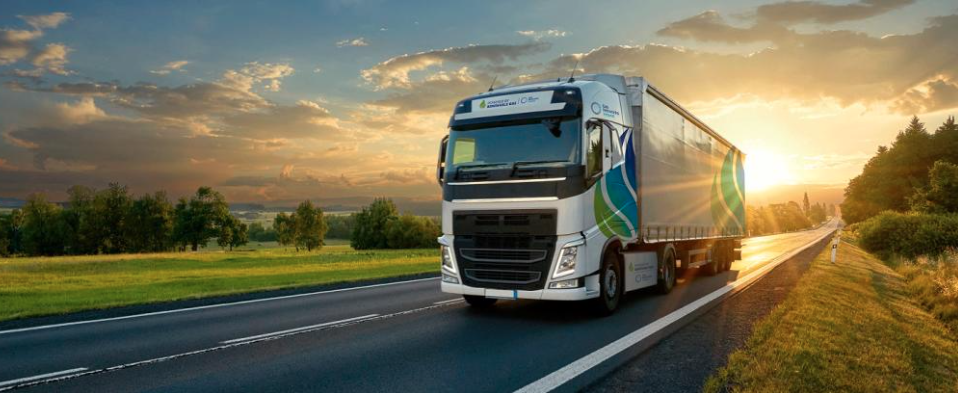On the occasion of the International Road Transport Union’s 75th anniversary year, Umberto de Pretto, who has worked in transport for over 30 years, discusses road transport’s past and future, as well as his personal journey in the industry.
 When did you join the industry?
When did you join the industry?
I first started working in “transport” in 1988 when I was given the transport portfolio as a Legislative Assistant for a Member of Parliament in Canada. I had to learn a lot about the industry very quickly. It was a very useful experience.
I experienced firsthand the ignorance, including mine, of politicians on fundamental aspects of our industry. I made the same false assumptions as some politicians make today, quite simply because the industry failed to effectively inform me about economic and transport realities.
What did you know about road transport before joining the industry?
I already knew a lot about cars thanks to a high school buddy of mine. As total gear heads, we used to take apart car motors and rebuild them for more “efficiency”, in other words, horsepower, when we were 16.
He taught me everything about how a car’s drivetrain operates, which has been of tremendous help in technical political discussions.
What has changed the most in the industry over the past 25 years?
Our environmental footprint. We’ve cut our toxic emissions by up to 98% over the past 25 years.
Transport operators now also understand that sustainability equals profitability.
What hasn’t changed?
The public’s perception of how clean our vehicles are, especially compared to private cars.
How has the perception of the industry changed over time due to IRU’s work?
Governments and international organisations increasingly see IRU, and therefore our industry, as a reliable partner that always comes to the table with pragmatic solutions.
If you could change one policy related to road transport, what would it be?
To be more efficient, ships and planes are made bigger, trains are made longer, yet the same logic isn’t sinking into the heads of decision-makers when it comes to trucks.
With eco-truck combinations (two trailers instead of one), we can reduce a truck’s CO₂ emissions by around 30%. It’s a no-brainer. A low-hanging fruit towards our objective of reaching net-zero emissions by 2050. But governments are doing very little to support this solution.
If you could change one aspect of how the industry is viewed, what would it be?
Our drivers are real life heroes. They don’t drive for fun. It’s to meet a social and economic need.
The 2023 IRU Grand Prix d’Honneur was awarded to all professional drivers worldwide. The award was symbolically accepted at IRU’s 75th anniversary event by three professional drivers from Switzerland, Sophie Massarotto (right), Audrey Maury (middle) and Reto Rösch (left).
What are some of the biggest challenges facing the industry today?
The 3 “Ds”: Driver shortage, decarbonisation and digitalisation.
What are the solutions?
To fundamentally address the chronic shortage of drivers, we need to improve working conditions and access to the profession to attract more people, especially women and young people. Put more simply, drivers need to be recognised for the crucial role they play in society.
To decarbonise while continuing to effectively meet demand, we have to start with the low-hanging fruits. Quick wins that are available right now than can cut CO₂ emissions by nearly 50% are efficient logistics, such as eco-trucks, driver training, and greater use of the most environmentally friendly and safest means of human mobility: buses and coaches.
Finally, governments need to start by implementing legislation to allow full digitalisation. For example, by signing the e-CMR protocol and allowing the most basic and necessary contract of carriage to become digital. Many countries have yet to take this very basic step.
What are some quick wins that we can implement to improve the industry?
Implement IRU RoadMasters to better manage risks/human skills and retain our drivers. Train them to gain 15% fuel efficiency. Take the step, go digital!
What’s your proudest moment at IRU?
Standing on the stage at IRU’s 75th anniversary celebration and looking at the joy and pride on the faces of our members as they gave a resounding standing ovation for IRU!
IRU’s 75th anniversary event in Geneva on 12 May 2023.
Before I became Secretary General, I was convinced that for TIR to grow, IRU would have to become more intentional and target geographically and economically strategic countries, particularly Brazil, China, Egypt, India, Iraq, Pakistan and Saudi Arabia.
I am proud to say that all these countries, but one, are now in the TIR system, and I am confident that Brazil will join soon. They will be the foundation for future TIR expansion.
Greatest achievement?
One of the greatest achievements I’ve helped with during my 28 years here was the 1996 IRU Charter for Sustainable Development signed together with Maurice Strong, the Chairman of the Rio Summit on Sustainable Development in 1992, which adopted the United Nations Agenda 21. The IRU Charter was truly ahead of its time and laid the foundation for IRU’s work today.
Greatest success?
Other than convincing my wife that I should buy a Ducati, having been blessed with the energy and drive necessary to defend this great industry at IRU for nearly 30 years, the last ten as Secretary General.
How has IRU impacted the industry the most?
IRU gave the industry a strong global voice that is not only listened to but also heard.
How would the industry look without IRU?
IRU is a necessity for the industry to have a voice, share best practices, find pragmatic solutions, and help one another as a global family. IRU’s forefathers understood this fully when they created IRU in 1948.
Has the industry changed for the better or worse?
You know my answer. What’s yours?


